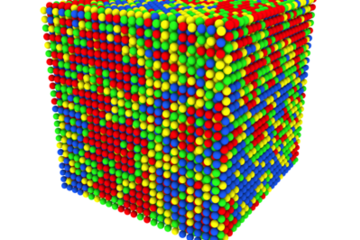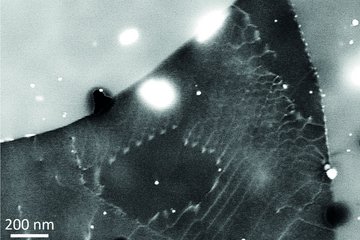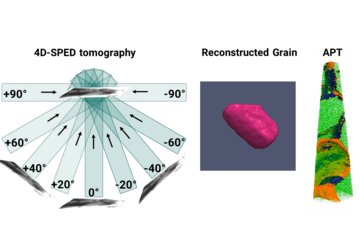All genres
261.
Talk
Thermodynamic Assessment of the Fe–Nb and Fe–Al–Nb System. 3rd Sino-German Symposium on Computational Thermodynamics and Kinetics and Their Applications to Solidification and Solid-State Phase Transformation, Xi’an, China (2011)
262.
Talk
Experimental Investigations of Phases, Phase Equilibria, and Melting Behaviour in the Systems Fe–Al–Nb and Co–Al–Nb and Their Terminal Binary Systems. Calphad XL, Rio de Janeiro, Brazil (2011)
263.
Talk
Fe–Al-based Materials: Phase Diagrams, Properties, and Potential for Applications. Seminar, University of Vienna, Vienna, Austria (2011)
264.
Talk
Laves Phases in Binary and Ternary Transition-Metal-Based Systems: Stability, Structure and Disorder. MRS Fall Meeting 2010, Boston, MA, USA (2010)
265.
Talk
Formation of Phases, Phase Stability and Evolution of the Microstructure in Al-rich Ti–Al Alloys. MRS Fall Meeting 2010, Boston, MA, USA (2010)
266.
Talk
TEM Studies of the Ternary Ti36Al62Nb2 Alloy. MRS Fall Meeting 2010, Boston, MA, USA (2010)
267.
Talk
Compositional Dependence of the Mechanical Properties of Laves Phases in the Fe–Nb(–Al) and Co–Nb(–Al) Systems. MRS Fall Meeting 2010, Boston, MA, USA (2010)
268.
Talk
The Co–Al–Nb System: Phase Equilibria and Composition-Dependence of Crystallographic Properties. TOFA 2010, Porto, Portugal (2010)
269.
Talk
TEM Studies of Ti36Al62Nb2 Alloys. MSE 2010, Darmstadt, Germany (2010)
270.
Talk
Ab Initio Study of Elastic Properties in Fe3Al-Based Alloys. MSE 2010, Darmstadt, Germany (2010)
271.
Talk
Preferential Site Occupations in the Hexagonal C14 Nb(Cr,Al)2 Laves Phase. EPDIC12, 12th European Powder Diffraction Conference, Darmstadt, Germany (2010)
272.
Talk
Mechanical Properties of Laves Phases in the Systems Fe–Nb(–Al) and Co–Nb(–Al) using Polycrystalline, Single-Phase Material. Materiels Science and Engineering 2010 (MSE), Darmstadt, Germany (2010)
273.
Talk
Kinetics of the Peritectoid Decomposition of the Intermetallic Phase Nb2Co7. PTM 2010, Solid-Solid Phase Transformations in Inorganic Materials, Avignon, France (2010)
274.
Talk
Combining Experimental and Computational Methods in the Development of Fe3Al-based Materials. 5th Discussion Meeting on the Development of Innovative Iron Aluminium Alloys (FEAL 2009), Prague, Czech Republic (2009)
275.
Talk
Experimental Investigation of Phases and Phase Equilibria in the Ternary Fe–Al–Nb System. 5th Discussion Meeting on the Development of Innovative Iron Aluminium Alloys, Prague, Czech Republic (2009)
276.
Talk
Thermodynamic Assessment of the Nb–Co and Nb–Co–Al System. 2nd Sino-German Symposium on Computational Thermodynamics and Kinetics and Their Applications to Solidification, Kornelimünster, Aachen, Germany (2009)
277.
Talk
Investigation of Phase Diagrams of Laves Phase Containing Binary and Ternary Nb–TM(–Al) Systems with TM=Cr,Fe,Co. 2nd Sino-German Symposium on Computational Thermodynamics and Kinetics and Their Applications to Solidification, Kornelimünster, Aachen, Germany (2009)
278.
Talk
Investigation of the crystallographic structure of the ε phase in the Fe–Al system by high-temperature neutron diffraction. TMS 2009 Annual Meeting, San Francisco, CA, USA (2009)
279.
Talk
The Binary Fe–Al System. 5th Discussion Meeting on the Development of Innovative Iron Aluminium Alloys (FEAL 2009), Prague, Czech Republic (2009)
280.
Talk
Phase-transformation kinetics in the TiCr2 Laves phase. MRS Fall Meeting 2008, Boston, MA, USA (2008)











